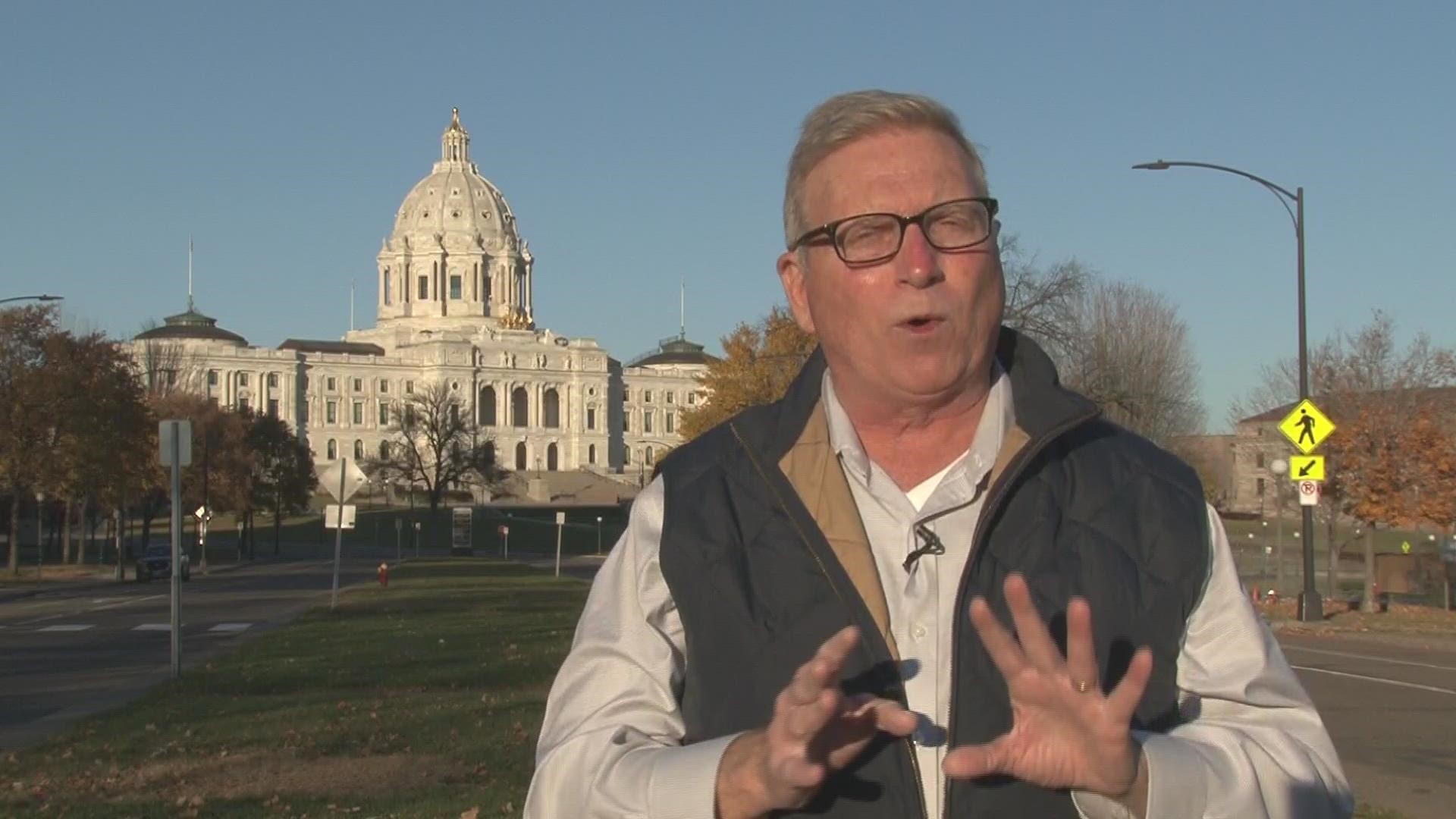ST PAUL, Minn. — The Minnesota Department of Transportation has made no secret about the backlog of road maintenance in the state and the "bridge bubble" -- aging spans that can't be ignored indefinitely. But the state's divided legislature won't raise the state gas tax anytime soon.
That's why the folks at MNDOT are very excited about the influx of extra federal dollars coming to Minnesota as part of the Infrastructure Investment and Jobs Act passed by Congress late Friday and signed into law by President Biden.
"We’ll be able to move some things forward that we frankly had to put on the shelf, and hold off on because we just did not have the funding to do," Minnesota Transportation Commissioner Margaret Anderson Kelliher told reporters Tuesday.
It's too early to know which specific projects will benefit from the state's share of the new funding, but Commissioner Kelliher said the agency will prioritize saving lives and preparing for the impacts of climate change on the state's transportation network.
"Resiliency is one of the things Minnesotans are talking to about. We have to be able to be prepared to have more resilient infrastructure that’s able to tolerate the levels of water we’re seeing."
Minnesota is set to receive at least $7 billion across the next 10 years, with $4.5 billion designated for highways. Other key allotments include:
- Public transportation: $818 million to improve our public transportation
- Water Infrastructure: $680 million over five years to improve water infrastructure
- Bridges: $302 million for bridge replacement and repairs
- Broadband internet: $100 million
- Wildfire protection: $20 million
- Cybersecurity: $17 million
US Rep. Angie Craig, a Democrat who represents Minnesota's 2nd Congressional District, said the broadband is especially important for areas outside the Twin Cities Metro area.
"There have been entire patches of America and Minnesota left out of high-speed internet broadband," Craig explained.
"One of the most important components to me in this legislation is $65 million set aside to be invested across America to bring high-speed Internet to almost every community."
US Rep. Dean Phillips, a Democrat who represents Minnesota's 3rd Congressional District, said the federal package was difficult to produce but proof that lawmakers can put politics aside and come together to do good things.
"We identified a common cause. There is no greater common cause for our country than infrastructure," Dean told reporters.
"We are falling behind. All you have to do is drive on a road, a highway, travel to an airport, try to get goods through a port right now, and you will know that we have fallen behind."
He touted the jobs it will create, and the shot in the arm it will give to the economy to modernize infrastructure and make it easier for people to get to their jobs in a timely fashion.
Dean, Craig and fellow Democrat Betty McCollum were the only three members of Minnesota's congressional delegation to vote in support of the bill. All four Republican members -- Tom Emmer, Jim Hagedorn, Pete Stauber and Michelle Fischbach -- voted against it. Democrat Ilhan Omar also voted against the bill because it left out many items that were in the original Build Back Better plan.
"I’m disappointed with all five members of the Minnesota delegation who voted against this bill," Craig remarked.
"My Republican colleagues voted against it because they don’t want to give Democrats a win. A pothole doesn’t give a damn what your politics are. It just wants and needs to be fixed."
She didn't spare Omar.
"I’m disappointed with my Democratic colleague who voted against this bill as well. I believe that was due to politics too, and I’ll leave it at that."

